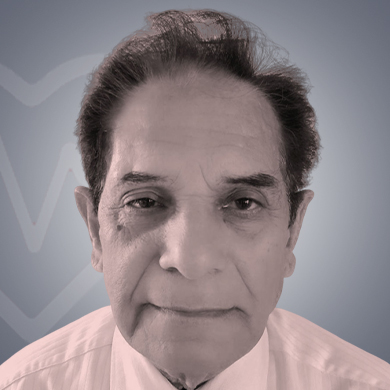
Surgical Oncologist
W Pratiksha Hospital , Gurgaon, India43 Years of experience
Speaks: English
Here is the list of some of the conditions Dr Subhash Chandra Chanana treats:
Some women require surgery to remove the entire breast through mastectomy. The surgeons remove the breast tissues including nipple and the skin and the tissues that have the chest muscles. You may opt for breast reconstruction after a mastectomy.
There are around 200 different types of cancer and all these can cause different symptoms. The symptoms are often linked to some cancer types. The signs could also be general, including weight loss, fatigue, and unexplained pain. Cancer can produce various symptoms and these can differ from person to person. Some of the signs and symptoms of different types of cancer are as follows:
The operating hours of Dr Subhash Chandra Chanana is 11 am to 6 pm (Monday to Saturday), The doctor does not see patients on Sunday.
The below-listed popular procedures for cancer treatment are performed by Dr. Subhash Chandra Chanana
The surgeon assesses the condition of the patient before performing any procedure to understand the risk associated with the procedure. The neurologist is popular for their high success rate and patient-centric approach which helps fast recovery of the patient. With vast experience in performing even the most complex cases with high precision and accuracy, the doctor follows medical protocols. Minimally invasive surgery and open surgery are two ways of doing cancer surgery. In open surgery, a large incision is made to remove the tumor. In minimally invasive surgery, surgeons make a few small cuts to remove the tumor. The common techniques for minimally invasive surgery are laser surgery, cryosurgery, robotic surgery, laparoscopy, cryosurgery.

Share Your Experience about Dr. Subhash Chandra Chanana

The surgical oncologist is often the first among cancer specialists to see cancer patients. The primary doctor most commonly does a diagnosis, and in cases where this requires biopsy or surgery, the surgical oncologist is called. Surgical oncologists are doctors with experience in cancer surgery. Surgical oncologists choose to perform surgeries to find out the locations where cancer has spread. While treating cancer, a surgical oncologist might remove cancerous tumors and surrounding healthy tissues, and nearby lymph nodes. The surgical procedures used will vary depending on the aim of the surgery. Surgical oncologists might do minimally invasive procedures or open surgeries.
The tests required before and during the consultation by a surgical oncologist include:
Most cancer patients undergo a biopsy to remove a sample of tissues from a body part for examination by a pathologist so that cancer can be diagnosed.
If your primary doctor suspects cancer, he will refer you to a surgical oncologist for the diagnosis of the condition. The surgical oncologist evaluates the symptoms and analyses the test report to find out if you have cancer. Below are some situations when you need to see a surgical oncologist: